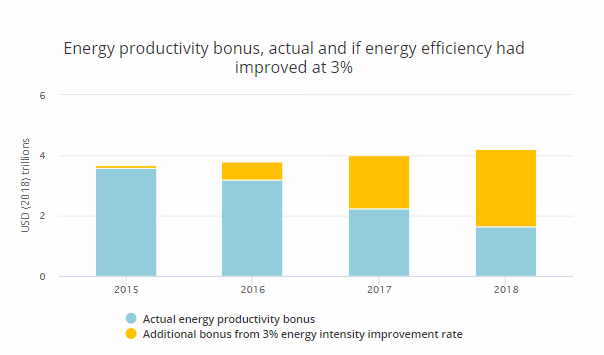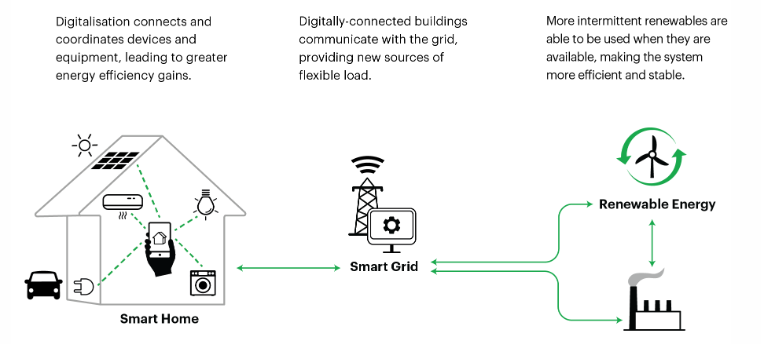IEA recently launched its “Energy Efficiency 2019” report, focusing on the important role of energy efficiency in today’s world that can boost the economic developments and help prevent GHG emissions; Yet, the report highlights that the global progress rate is slowing down.
According to the report, the global primary energy intensity increased by 1.2% in 2018, the slowest rate from 2010. The improvement rate has been reduced for three years in a row, below 3% minimu, with IEA noting that if the rate was increased more than 3% that would have led to a further USD 2.6 trillion of economic output – close to the size of the entire French economy – for the same amount of energy.

Dr Fatih Birol, the IEA’s Executive Director commented that
We can improve energy efficiency by 3% per year simply through the use of existing technologies and cost-effective investments. There is no excuse for inaction: ambitious policies need to be put in place to spur investment and put the necessary technologies to work on a global scale.
In efforts to boost developments, IEA launched in July the Global Commission for Urgent Action on Energy Efficiency, which will provide recommendation in summer 2020 on how to achieve major breakthroughs in energy efficiency policy.
Moreover, the report has resulted that the relation between social and economic trends along with other specific factors as extreme weather conditions have played a crucial role in the recent deceleration. In the meantime, new policies have emerged, that are far from the traditional think-tank, and aim to enhance efficiency gains from the development of digitalization.
Additionally, IEA’s report pays attention to digitalization, as it is modernising energy efficiency and increasing its value. While efficiency in these areas has always had benefits for energy systems, digitalisation enables these benefits to be measured and valued more quickly and more accurately.

Dr Birol added that
As digitalisation transforms the global energy system, the IEA is committed to helping countries ensure they are able to maximise the benefits while navigating the challenges.
However, although digitalization has the potential to improve all sectors and end uses of energy, it is still not obvious and certain what will these benefits be.
Concluding, you may learn more on the report by clicking here.






























































